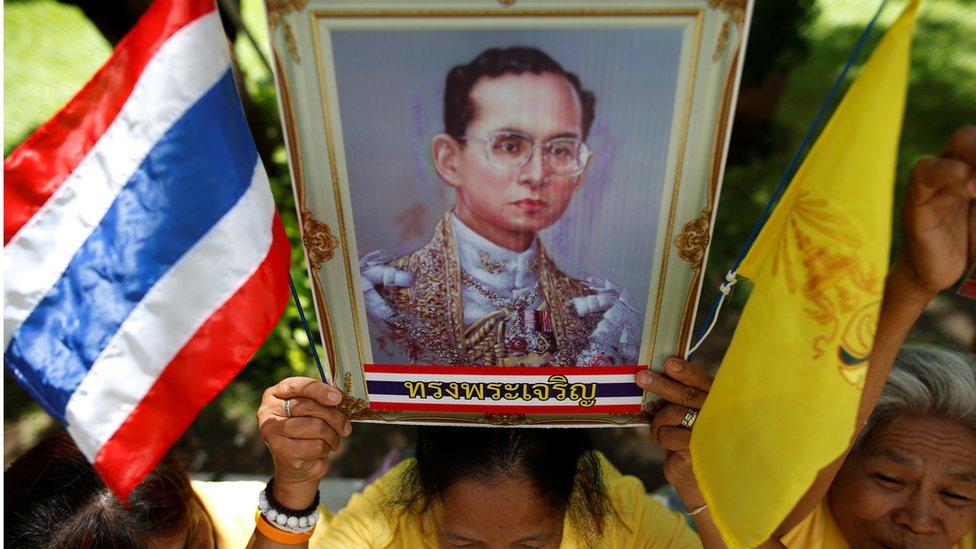Thailand begins naming Prince Vajiralongkorn as new king
- Published
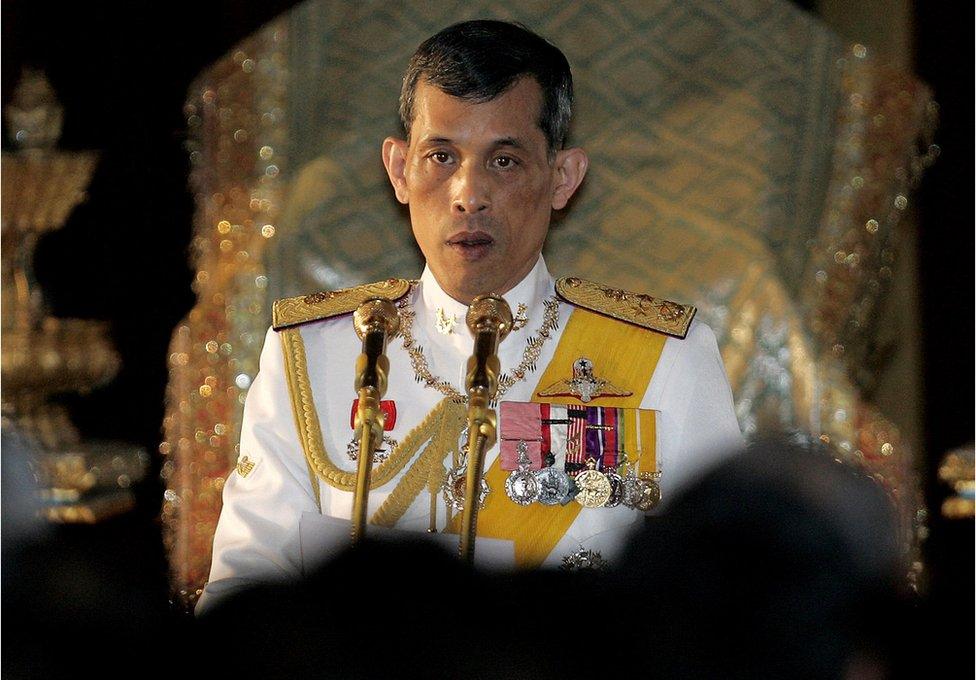
The prince was widely expected to succeed his father
Thailand has begun the process of naming Crown Prince Maha Vajiralongkorn as the country's new king.
Its parliament approved the sending of a formal invitation, which he has to accept before ascending to the throne.
The deeply revered King Bhumibol Adulyadej died on 13 October, plunging Thailand into mourning.
The prince was widely expected to succeed his father, but officials had earlier said he wanted to postpone it by at least a year.
The official reason given was that he wanted to give the Thai people time to mourn his father before he became king.
Correspondents say Thailand was left in an odd constitutional limbo as the prince, the undisputed heir, should have succeeded his father immediately.
In the past doubts have been expressed by senior officials over how the crown prince can perform the role played by his father for 70 years.
The monarchy occupies a pivotal place in Thailand's political order. King Bhumibol Adulyadej had been seen as a unifying figure amid periods of political unrest, including during the most recent military coup in 2014.
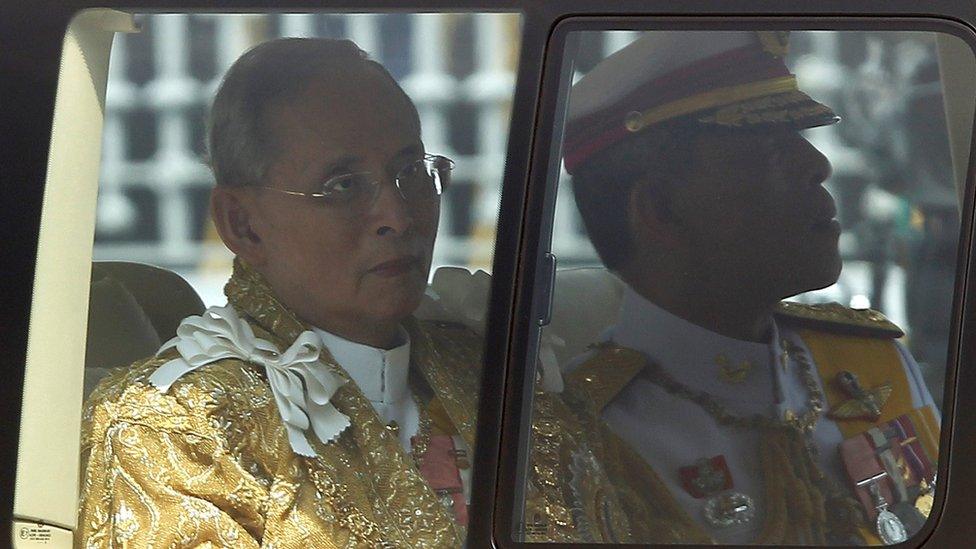
The late king (left), seen here in a 2012 photo, had endorsed the crown prince to be his successor
The leader of Thailand's parliament, the National Legislative Assembly, is expected to meet the crown prince in the next few days to formally invite him. Once the crown prince accepts, his succession would then be announced to the public.
But it is still not clear when that will happen.
Former Prime Minister Prem Tinsulanonda is currently standing in as regent.

A succession departing from script - Jonathan Head, BBC News, Bangkok
Thailand has rarely had what might be called routine royal successions. The last was 70 years ago, when the young King Ananda was found shot dead in his bedroom in still unexplained circumstances.
When he died, an emergency session of parliament that night named his grief-stricken brother Bhumibol king.
Despite private speculation over the prospects of his popular sister Princess Sirindhorn, Crown Prince Vajiralongkorn has been the undisputed heir to the throne since his formal investiture in 1972.
Thai succession law follows the principle of primogeniture, where the throne should pass to the eldest son of the reigning king, but it also gives the king the discretion to name his own choice. King Bhumibol never wavered in his endorsement of the crown prince.
But the crown prince's unexpected decision to delay taking the throne has made this yet another succession which has departed from the script.
His real reasons are not known; public mourning for his father would not have been affected had he been anointed immediately after his father's death.

- Published16 October 2016
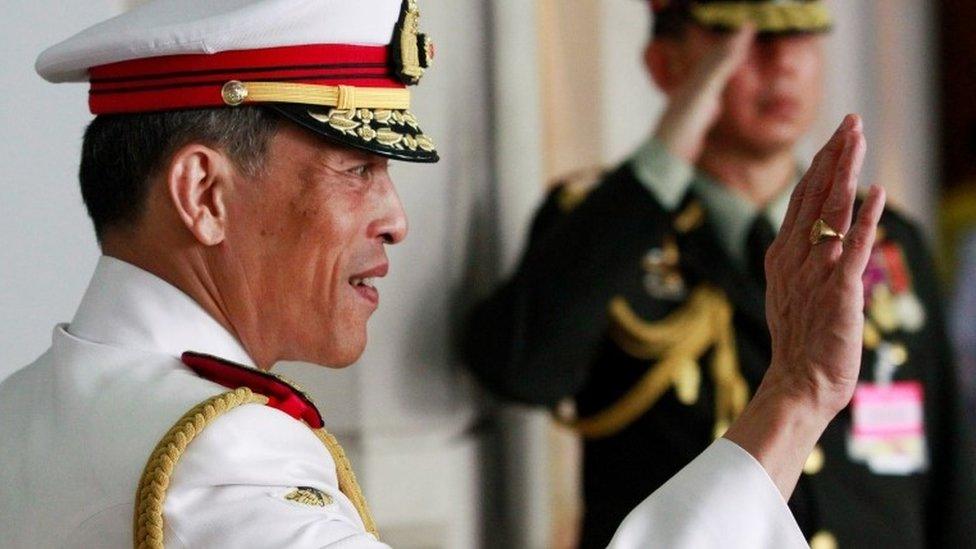
- Published13 October 2016
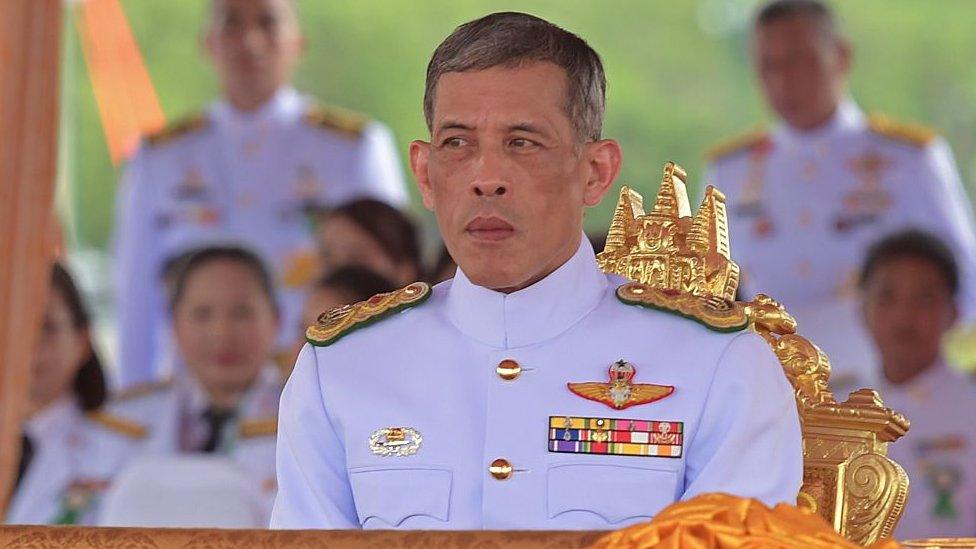
- Published16 October 2016
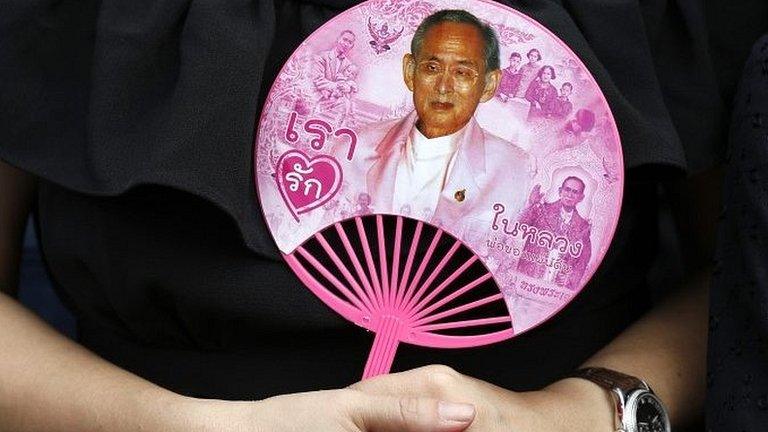
- Published13 October 2016
